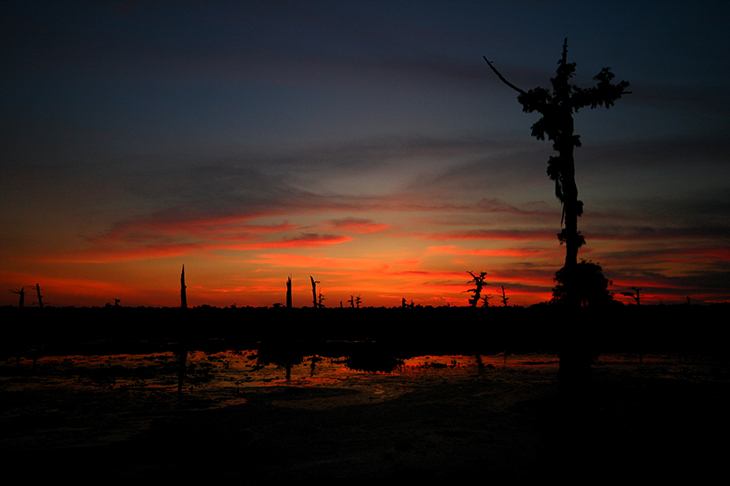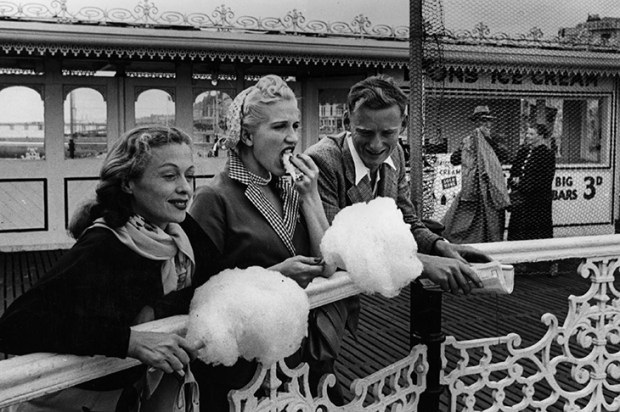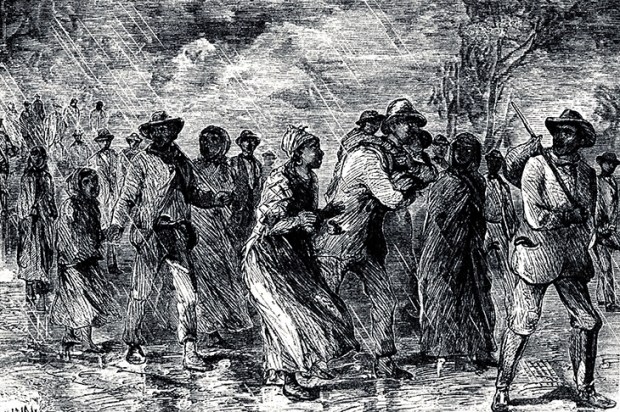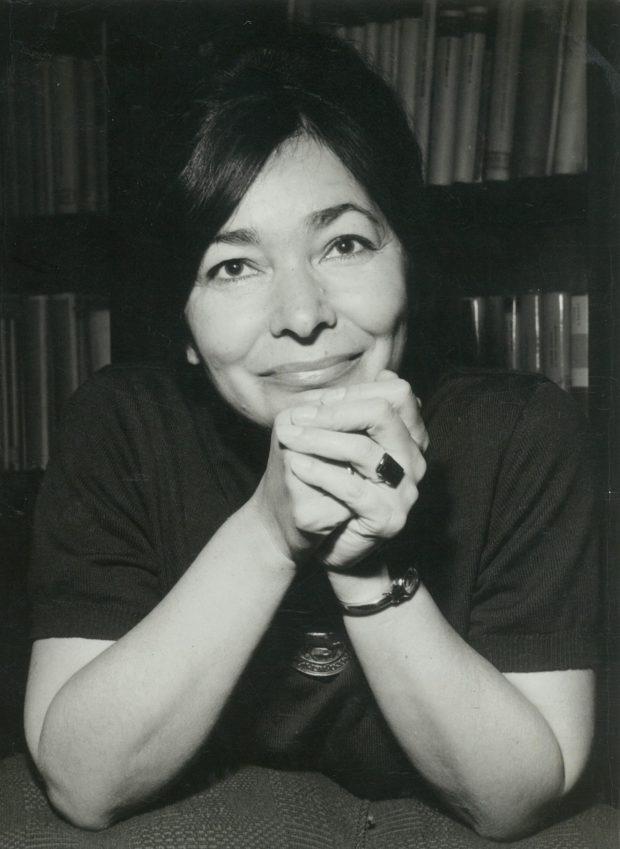The king of crime fiction doesn’t need a crown and sceptre. Every page proclaims his majesty. James Lee Burke has now written 22 books about Dave Robicheaux, but readers will never grow tired either of him, his friend, Clete Purcel, or the bayou. The New Iberia Blues should be greeted with a fanfare of trumpets: it is a masterpiece.
As his admirers know, Burke is no mere crime novelist. His lifelong subject is the fall of man, and Louisiana is his demi-Eden. The swamp maples and mossy oaks, the pinks of dawn and the crimson hues of twilight are all here again, though the mood is autumnal, for Robicheaux’s sand is ‘shrinking, shrinking’. It is appropriate to quote the man from Dorset, because Burke’s bayou is no less evocative than Hardy’s Wessex. They are both great painters of landscape.
The cast is familiar: Florida hitmen, New Jersey mobsters, and the Confederate ghosts that come upon Robicheaux in the light of day. This time the death-haunted detective must also contend with a rat pack of Hollywood scum, led by a star director, Desmond Cormier, a local mixed-blood boy made good. We start with a crucifixion at sea, and move gruesomely through the cards of the tarot as Robicheaux enjoys — if that is the word — a late-flowering romance.
But the brutality, as ever, is tempered by the unforced lyricism of the writing. The despoilation of Louisiana ‘we did to ourselves, in the same way that a drunk like me will destroy a gift, one that is irreplaceable and extended by a divine hand’. Burke has always written out of a profound regret that he wasn’t born at least 50 years earlier.
At the book’s core is the great double- act with Purcel, ‘the only man I ever knew who could walk through evil and not be blighted by it’. There is darkness in their world; yet even though they have seen the worst that man can do, tempted by that serpent in the garden, they know that goodness shines a greater light.
There is a conscious act of homage as one American master salutes another: John Ford — in particular his classic, My Darling Clementine, with its play of darkness and light. In the novel’s exquisite epilogue Burke also tips his hat to The Great Gatsby, affirming his belief that the green republic, for all its imperfections and current travails, is ‘a votive gift that belongs to us all’. Those beautiful closing sentences may, in time, become as celebrated as Fitzgerald’s. Roll on forever, James Lee Burke.
Got something to add? Join the discussion and comment below.
Get 10 issues for just $10
Subscribe to The Spectator Australia today for the next 10 magazine issues, plus full online access, for just $10.
You might disagree with half of it, but you’ll enjoy reading all of it. Try your first month for free, then just $2 a week for the remainder of your first year.














Comments
Don't miss out
Join the conversation with other Spectator Australia readers. Subscribe to leave a comment.
SUBSCRIBEAlready a subscriber? Log in